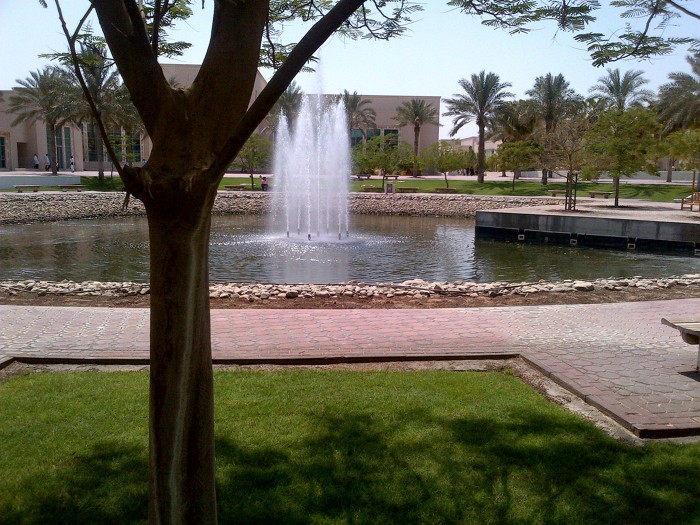Advertisement
Grab your lab coat. Let's get started
Welcome!
Welcome!
Create an account below to get 6 C&EN articles per month, receive newsletters and more - all free.
It seems this is your first time logging in online. Please enter the following information to continue.
As an ACS member you automatically get access to this site. All we need is few more details to create your reading experience.
Not you? Sign in with a different account.
Not you? Sign in with a different account.
ERROR 1
ERROR 1
ERROR 2
ERROR 2
ERROR 2
ERROR 2
ERROR 2
Password and Confirm password must match.
If you have an ACS member number, please enter it here so we can link this account to your membership. (optional)
ERROR 2
ACS values your privacy. By submitting your information, you are gaining access to C&EN and subscribing to our weekly newsletter. We use the information you provide to make your reading experience better, and we will never sell your data to third party members.
Ethics
UAE university breaks ties with beleaguered nanoscientist
Decision follows article in C&EN describing unethical practices by scientific journal he runs
by Dalmeet Singh Chawla, special to C&EN
November 28, 2023

The University of Sharjah in the United Arab Emirates has parted ways with nanoscientist Yarub Al-Douri after C&EN published an article revealing that he was running a journal that stole the identities of several prominent scientists, among other infractions.
C&EN reported on Nov. 19 that Experimental and Theoretical Nanotechnology (ET Nano), a journal that Al-Douri edits, has been publishing studies that are often plagiarized. Many articles list well-known researchers as authors, despite them having had nothing to do with the work.
The journal’s editorial advisory board members were also typically wrongly listed and weren’t aware of ET Nano when they were notified about the journal. ET Nano originally identified Al-Douri as being based at institutions in Turkey, but his listed affiliation changed to the University of Sharjah after he was contacted by scientists whose identities had been stolen.
In a letter to C&EN on Nov. 27, the University of Sharjah’s chancellor, Hamid M. K. Al Naimiy, noted that Al-Douri had joined his institution as visiting faculty on Sept. 1.
“Upon reading your article, we launched an investigation and found that the evidence provided about Dr. Al-Douri’s questioned practices as the journal’s editor were substantial,” Al Naimiy wrote. “As a result, the University of Sharjah has decided to terminate the relationship with Dr. Al-Douri with immediate effect. Meanwhile, we reiterate that the University of Sharjah as an institution has had nothing to do with Dr. Al-Douri’s predatory journal.”
Al-Douri, who says that he acknowledges that Sharjah was not involved with ET Nano, stands by the journal and its content. “This is a respectful journal,” he writes in an email.
Michael Fischer, a geoscientist at the University of Bremen who was instrumental in exposing ET Nano’s practices, says he is pleased with the outcome. Fischer says the university is “sending the right signal to the scientific community: Fraudulent behavior cannot be tolerated and must have consequences. I hope this clear decision will discourage other scientists from engaging in unethical practices.”
C&EN emailed Munir Nayfeh, ET Nano’s honorary editor and a physicist at the University of Illinois Urbana-Champaign, for a comment but didn’t hear back by deadline.





Join the conversation
Contact the reporter
Submit a Letter to the Editor for publication
Engage with us on Twitter